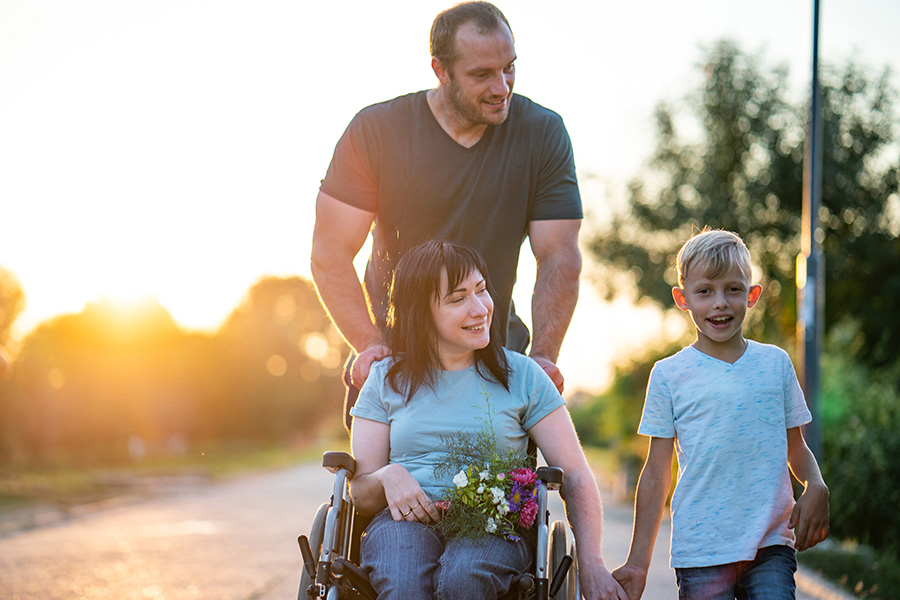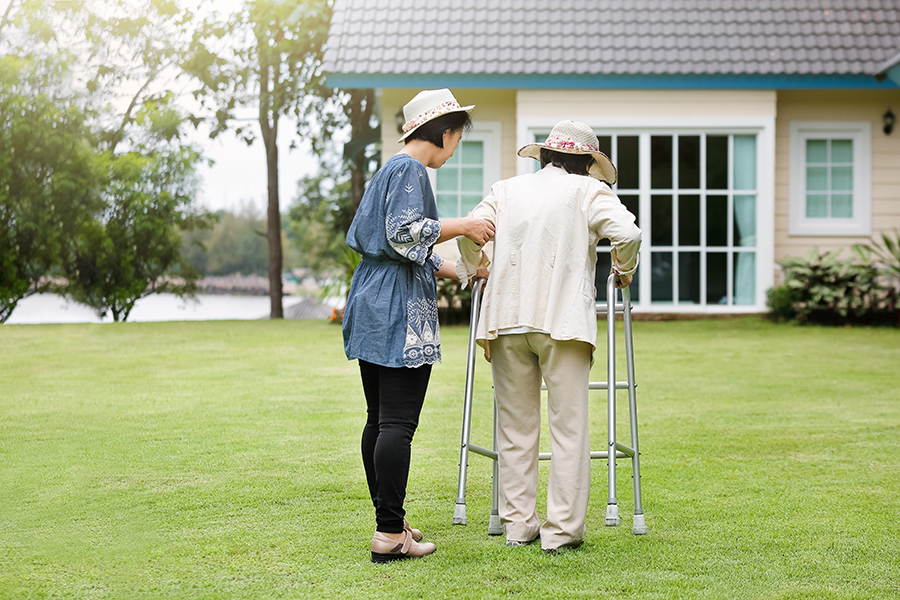In 2020, 41.8 million Americans provided unpaid care to an adult over the age of 50. Many of these caregivers work full-time jobs and have other responsibilities such as caring for children, housework, chores, and volunteer work.
Many people find themselves caring for a family member at some point in their lives. Acting as caregiver for a loved one is not something many people anticipate or are trained for, but it’s an act that is carried out every day. Out of love and loyalty, individuals work every day to improve their aging, sick, or disabled family member’s quality of life. However, the responsibilities of caring for a family member do not need to be carried out alone. If you are an unpaid family caregiver and need assistance meeting your loved one’s needs, there are community resources available that provide help and support.
Tips for Caregivers
- Accept your feelings.
- You may be feeling anxiety, anger, resentment, guilt or even grief surrounding your role as a caregiver. It is important to acknowledge what you are feeling and accept that these feelings are normal.
- Find caregiver support.
- You cannot do everything on your own. Determine what you are reasonably able to handle and reach out to family and friends for help with the rest of your family member’s care. You can also reach out to caregiver support groups and organizations, or a therapist, social worker, or counselor.
- Connect with your loved one.
- Spend time connecting with the loved one you are supporting. Bonding time can boost your mood and reduce stress, as well as strengthen your relationship with them.
- Care for your own needs.
- Your care better when you are at your best. Even though it can feel impossible to find the time, try to make sure you are taking time to relax and take care of your own needs. Try your best to stay social, do things you enjoy, exercise regularly, eat right, get enough sleep, and maintain your own healthcare.
- Take advantage of community services.
- Most communities have services in place to support caregivers. Look for veteran service centers, senior centers, family service centers, or hospital social work units.
- Provide long-distance care.
- If you live further away, you can employ resources such as medical alert systems, working with an assigned case manager, or local services like in-home care, meal delivery programs, and local transportation services. You can also keep in regular communication with your loved one with daily or weekly phone and video calls, or you can help manage their health by coordinating their doctor and medical appointments.
Paid Family Caregiving
Most family caregivers are unpaid. However, there are a few funding options that may be available to individuals who qualify. These programs are designed to assist you financially while you are acting as a family caregiver.
If someone with a disability receives Medicaid, the state may allow a friend or family member to become a paid caregiver. This is called a consumer-directed personal assistance program. Contact your state’s Medicaid office to learn more.
Some long-term insurance policies may also allow a paid family caregiver. Reach out to your loved one’s long-term insurance policy agent to receive a written confirmation of benefits.
Lastly, some veterans programs will cover the costs of a family caregiver. Reach out to your local Veterans Service Organization to learn more.
Caring for a family member can be a tough responsibility to take on. It is often unexpected, and it can throw life off-balance for a while. However, there are many state, federal, and community resources available to support family caregivers and their loved ones. Whether it be government and local community services, or support from family and friends, know that you are not alone.






















